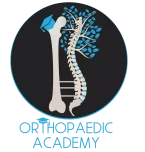FRCS Case Discussions
Live | Interactive | Online
In association with
11th April & 17th October 2026
Taught by Our Faculty
Overview
This course for the Postgraduate Exit Orthopaedic Examination (FRCS) has been meticulously designed to meet the needs of all candidates, at any stage of preparation .
The goal is to provide candidates with the necessary skills and knowledge to excel in the exam.
Our teaching faculty have been handpicked based on their extensive experience in guiding candidates for the FRCS (T&O) exam. They are deeply committed to helping each candidate reach their highest possible level of achievement in the examination.
Target audience
- Candidates preparing for part 2 of FRCS Exam.
- Useful to supplement ISCP portfolio :The structured assessment and feedback can be added to your ISCP portfolio .
Course Aims
- Pinpoint knowledge gaps that may require additional study and Preperation
- Develop proficiency in answering questions succinctly, simulating real-life viva situations
- Experience a wide variety of question types and subjects
- Delve into high-yield topics and complex concepts
- Gain insights into real exam scenarios
- Learn valuable study techniques and strategies
Structure of the Course
- Candidates are provided with a series of scenarios and questions to practice answering under the guidance of the teaching faculty.
- Detailed analysis of these questions and answers will be carried out by our experienced faculty , focusing on clarifying key points to evaluate comprehension.
- Sufficient time will be allotted for questions and personalized feedback.
Marking Criteria
The outcome grade in the FRCS exam is based on:
- Methodical approach to your answer
- Clear decision making
- Ability to proceed with minimal prompting
- Familiarity with relevant supporting literature
Time Table
- Basic Sciences cases and discussion of answers
- Paediatric cases and discussion of answers
- Hands cases and discussion of answers
- Adult Pathology cases and discussions of answers
- Trauma cases and discussion of answers
- Q & A , Conclusions and close










